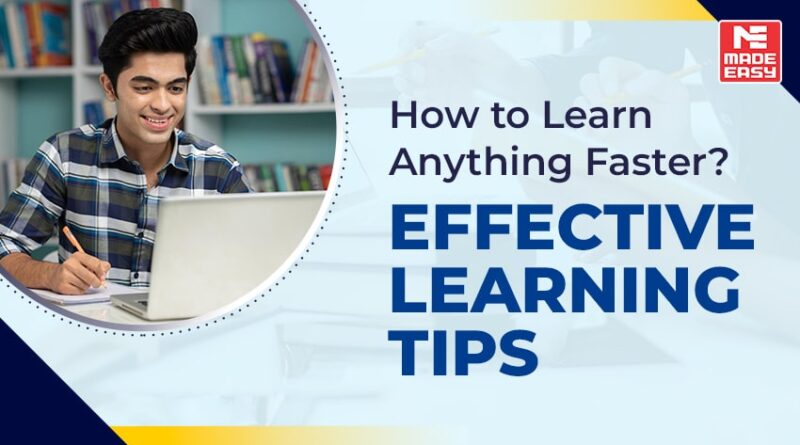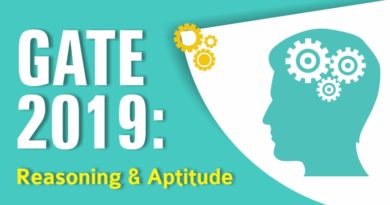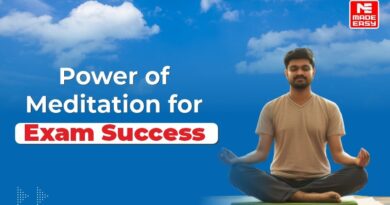How to Learn Anything Faster? | Effective Learning Tips
In the current era, fast learning is a skill that every individual tries to learn at some point in their life. All of us have been at that place where we see some of our friends memorizing or understanding a concept at tenfold the speed that we can. We all envy such people, as they always get an edge in any exam, be it ESE, GATE, or even regular college exams.
Faster learning has many benefits, like it helps individuals to adapt to new conditions quickly, learn new skills, stay ahead of others in this fast-paced world, etc. But the main concern is how to learn anything faster. From ancient times, lots of tricks and methods have been developed and followed by philosophers and researchers, but with the passage of time, either these tricks/tips have become hard to follow, or they are not suitable/enough in the current era. In such a scenario, often people get confused about what some tips are that they can follow to increase their learning speed.
Now here’s some good news: you can also be among those with a few simple tips for effective learning, and you can even learn anything fast & effectively.
Effective Learning Tips:
These study tips that we present in this blog are nothing but a few small changes in your learning pattern and schedules but make a big difference to the speed and effectiveness of our learning:
Table of Contents
1. Don’t read a textbook like a novel:
It is very commonly seen that when aspirants prepare for an exam, they go through textbooks the same way as they would read a novel. Starting from the first page, reading each line until the last. This is not a very helpful practice because it is not a systematic approach to squeeze information into the head and hope that it stays there. This scientific technique to read textbooks is where you first get an overview of the chapter by flipping through it step by step before you actually start reading it to take notes. Here’s the detailed scheme that you can follow to read textbooks to gain from them effectively:
- First, flip through each page of the book to look at the chapter you’re going to go through.
- Look at all the pictures, graphs, diagrams, bar graphs, etc., and also the number of words that the author has incorporated and how he has placed them.
- Now slide at the end to see if there is any quiz related to the chapter.
- Generally, any textbook will provide for a quiz or questions at the end. Read the quiz to see what you need to look for. Before you actually go through the chapter, it is important to know what you are going to get from the chapter.
- Now, scroll back to the beginning and read only the bold prints. The information that the author wants you to see and pay attention to is put in bold, which would be all the titles, subtitles, etc. These bold prints tell you about the breakdown of the information in the chapter.
- So, now you have an idea of how all this stuff fits together.
- Before you finally start to read the chapter, now, just go through the first and last sentences in each paragraph. The first line is an introduction or overview of the contained information, whereas the last sentence helps you sum it up.
- This entire practice is not for comprehension but for the introduction. So even if you cannot connect the dots as of now, you at least have a map of all the dots. You have got a preview of coming attractions, and your brain is, thus, set up for the information.
- Now you are all set to read the chapter and take notes.
Like this, you only need to go through a textbook once. Now, this may look like a lot of effort and time-consuming activity for ESE preparation. But anyway, this is any day better than rereading a book multiple times and getting bored, isn’t it? The process may be slower but is manifold more effective than traditional reading. Getting an overview of what the author wants to convey in advance before you actually go through the chapter helps the human brain to turn on its radar so that it is ready for the upcoming information. The information thus retains faster and for a longer time.
2. Plan before you study:
The human brain is designed to work at its maximum efficiency when it is involved in tasks that were pre-planned and known to it. If you follow a consistent schedule throughout your preparation phase, that is when you can utilize your brain to the maximum for effective and fast learning for ESE or GATE. If your mind maps your study schedule for the evening in the afternoon itself, your brain is ready for the upcoming information and works its best to learn it the fastest.
3. Mix and match:
Always keep your study schedule a mix of practicing questions, learning theory, and revising old subjects. Concentrating on only one of these at a time creates monotony in the brain and slows down the process of learning, making it inefficient. Try to keep learning or memorizing part towards the start of your schedule, followed by revision of an old subject, and towards the end of your study session, you can keep time for practicing questions. Another study tip here is to make things important for your brain. Apart from you knowing the importance of the exam that you are preparing for, it’s important that your brain knows it too. If the importance of a task is known to the brain, it’s seen that it retains the information faster and more effectively. Else, the brain tends to forget any attained information within minutes of learning.
4. Repetition is the mother of learning:
Here, have a look at the following graph: The Ebbinghaus forgetting curve represents the percentage of information retained by the human brain as time after learning new information elapses. We see here that 42% of the information is lost within 20 minutes of the learning. Which means that within an hour of reading this article, 56% of the gained knowledge would already be lost. What do we do? We use intervals for memory reinforcement. Revision is one of the tips for effective learning for the GATE and ESE. There is a pattern for even how revision should be performed for maximum retention.
5. Immediate revision:
The first revision of the lecture or your own notes should be done immediately after the class. The second revision must be done within 48 hours or three days after the first learning. The third revision must be done within one week of the lecture, whereas the next revision can be any time within one month after you learn a new concept. The last revision must definitely be once before the exam. The brain tends to retain information that it keeps seeing continuously, known as the mere exposure effect.
6. What you see, you remember:
It has been noted that only 10% of what we read stays in our mind. Whereas if we see something repeatedly, it is an important tip for effective learning, as it finds space for a longer time in our memory. Rereading or seeing important formulae and concepts, even subconsciously, can help in the fast learning of the same.
We see that our brain tends to remember the advertisements that we see regularly, known as the mere exposure effect. If it works for advertisements, it certainly works for studies as well. Making short notes or micro notes can be a helpful practice here. Even when you are unable to sit back and solve questions for your upcoming ESE exam or GATE paper, you can always have a look at what important concepts you’ve already gone through. You can also make flashcards mentioning the formulas that you have the hardest time remembering and place them in your room and keep their digital copies on your smartphone to have a quick review anytime, anywhere. This is also the only fruitful way you can utilize your smartphone in your ESE preparation. Though there are multiple ways you can relax your mind between your studies without getting distracted completely.
7. Eat, read, sleep, and repeat:
Needless to say, quick and frequent breaks between study sessions are inevitable. What is important, though, is that the small breaks should not disturb the flow of studies for an aspirant. They should only be directed for the refreshment of the mind to prepare it for the upcoming information. Music is also seen to increase concentration while studying for many students along with refreshing the mind. It is not necessary that you stay away from social media or any platform if that does not disturb your mental peace. It is important, though, that you avoid any kind of news, events, engagements, or people that can cause distraction in this crucial phase of preparation for the ESE and GATE.
8. Take a break:
When you take a break from studying, be on a complete break. If you still keep thinking and stressing over what is left and how to do it, the complete point of having a break becomes redundant. A stress-free mind is the most efficient learner. It is necessary to take breaks often; not too long, though. It is always advisable to study in small stretches of three hours or so. Studying in small chunks helps in retaining the information attained efficiently.
9. Method of loci:
If you could use your existing knowledge to acquire new information, that would be a great study tip, wouldn’t it? The good news here is that this technique is already in use and is also a very famous study tip for effective learning. Learning new subjects by making connections and associations with subjects that you have already studied helps retain and learn new information more effectively and faster, known as the method of loci. The brain finds appropriate routes and space to fit new information when it is associated with the existing knowledge. This is why it is always advisable to first read and study all the subjects. After the information has been retained and stored properly in the brain, there is only one way to ensure that it stays there, and it is “practice”.
10. You never forget what you “do”:
Even if you go through or re-read a problem multiple times, there is no surety that the concept will stay in your memory if not practiced. Practice does make a man perfect, no matter what other tips for effective learning you try and apply. Practice as much as in your capacity. If you face issues in applying concepts that you have understood, joining a good test series, like one offered by MADE EASY, would be a good idea. A good test series helps not only in reinforcing or checking the application of concepts learned but also in boosting your confidence in the subjects that you have learned already.
11 Time in analysis still counts as study time:
Analysis of test series is also as important. We never forget what we learn from our mistakes. If you make a mistake in a question, it’s sure that you will never forget the concept related to that question. Though, if you fail at understanding concepts completely, you may try to learn them for teaching. Teaching is a helpful practice to retain information that you acquire. You never forget what you preach, discuss, and teach. This would help you clear your concepts and learn effectively as well, and another aspirant would gain new concepts. This way, you both can save time and learn double the new information in the time of one.
Forming such small support groups with like-minded people helps in on-time doubt clearance, effective learning, and fast retention of knowledge. It does not matter whether you study for 4 hours a day or 12; what matters is the content that you gain in those study hours and how effectively you fit that into your memory. It is the most important tip for effective learning that you focus on quality rather than quantity of study hours. Even if you study for 4 hours a day, it’s sufficient if you are efficient in at least 3 hours of the total. The correct amount of determination and will, when put together with substantial hard work, can help you achieve any heights of success. We hope that the above study tips will help you learn more effectively and help you crack GATE, ESE, or any other competitive exams. Stay hydrated, stay fresh, and keep practicing and studying.
These are some of the tips from MADE EASY for faster learning. Reader should note that these are some general tips. Aspirants are free to modify these tips as per their need and situation.
FAQs:
1. What are the benefits of faster learning for GATE and ESE aspirants?
Answer: Faster learning helps GATE 2026 and ESE 2026 aspirants to learn concepts faster in comparison of other candidates. It also keeps them ahead of their competitors in exam.
2. How to study fast and effectively?
Answer: Find a quiet space which is free from distractions, create a study schedule, breakdown the information in smaller segments, use learning techniques, take regular breaks, prepare handwritten notes and revise regularly.
3. What is 2/3,5/7 study rule?
Answer: 2/3,5/7 is an effective study rule in which the individual read from notes on first, second and third day then take break on fourth day, revise on fifth day then again break on sixth day and then revise on seventh day.
We wish all the best to every aspirant!
Dear Aspirants,
Your preparation for GATE, ESE, PSUs, and AE/JE is now smarter than ever — thanks to the MADE EASY YouTube channel.
This is not just a channel, but a complete strategy for success, where you get toppers strategies, PYQ–GTQ discussions, current affairs updates, and important job-related information, all delivered by the country’s best teachers and industry experts.
If you also want to stay one step ahead in the race to success, subscribe to MADE EASY on YouTube and stay connected with us on social media.
MADE EASY — where preparation happens with confidence.

MADE EASY is a well-organized institute, complete in all aspects, and provides quality guidance for both written and personality tests. MADE EASY has produced top-ranked students in ESE, GATE, and various public sector exams. The publishing team regularly writes exam-related blogs based on conversations with the faculty, helping students prepare effectively for their exams.




it’s really a good moral and motivating thoughts…
Dear Cnadidate,
We are glad to hear that our article helped you and motivated you. Please keep visiting our blog to get more helpful content in future.
Regards,
Team MADE EASY
👍